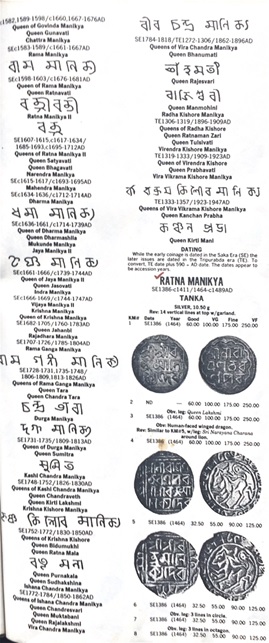
Many harboured a notion that indigenous societies suffered from lawlessness at least, in matters related to marriage. It was often thought that these societies were beleaguered by over permissiveness and a sense of lawlessness. This led them to the conclusion that the institution of marriage had little meaning to couples, who were free to walk in and out of their wedded lives without valid causes. This misconception was mostly founded on the concept of equality that women enjoyed in indigenous societies. In Tripura this equality stretched from the palace to the hills.
Law, which was the product of a rather complex process of socio-political organisation, was unknown, in its present sense in the ‘primitive’ ages. The society was then not a collection of individuals but an aggregate of families. There was no king or sovereign to frame rules or set laws for families. Each family was independent of another and followed its own head, whose will or pleasure was ‘law’ unto its own members. Only when the families expanded and evolved into a ‘community’ and ‘community’ into ‘society’ were rules and principles established for the guidance of its members. And most of these rules and principles had their origin in the ‘usage’ or ‘practice’ of natural and cultural resources of the community. The long and continuous recourse to these resources by the community led to the institution of customary practices. When customary practice from long usage obtained the force of law, it became customary law.
The intrinsic value of these customary laws was that they came from a process of evolution through the millennia. Far from being hard and fast or rigid rules; these evolved along with the societies that followed them. They changed and adapted to the new conditions that prevailed. In this sense these were ‘organic’ and not static, reflecting the society’s changes with the passage of time. Therefore, any attempt to disrobe them of their evolutionary characteristic would undoubtedly render them archaic and ‘lifeless’; fit only for anthropological studies. Consequently, the question of whether these customary laws could be applied as a ‘blanket rule’ upon a society that was facing cultural and social transition called for a serious debate.
The indigenous people of Tripura were thus guided by customary laws on various matters; divorce was one of them. Both the man and the woman had equal rights to divorce. Once a divorce was sought in the assembly of elders presided over by the headman of the village; the husband and wife had to live separately. On a prefixed date the hearing took place. Both were allowed to put forth their views, either opposing or consenting to the divorce, which had been sought earlier. The person seeking the divorce had to pay back the expenses incurred on their marriage. This was worked out in consultation with their parents and if their parents were not alive then the elders of the village decided the amount of penalty.
These were almost like the sections of the Indian Penal Code framed by the government on divorce but in fact they came long before the birth of any parliamentary form of government or any court of law. These rules were followed by simple people living in remote areas, far from the gentry and their vast libraries. The people respected these rules as a part of their custom that was handed down to them through the centuries, as collective wisdom. These were neither acquired from any university nor thrust upon them from the outside. In fact, their value systems came from their own simple understanding of their needs for living in harmony with one another and with their surroundings.
These are all subtle reminders that so-called primitive societies were much ahead with respect to gender equality and also in other spheres like environmental consciousness, community assets and their sharing than many ‘developed’ societies as they are termed. Therefore, the tendency to patronise is perhaps unwarranted and needs to be replaced by understanding and learning from socio-cultural values and their history. It is important to look for ways to adapt some of these age-old human values into the modern world.
It was often said that, “A society is best judged by the status and rights it gives to its women”. Here the queens fought besides their kings for the safety of their people and integrity of their kingdom. Some heroic queens remembered in history are Tripura Sundari Devi, Dayabati Devi, Janhavi Devi and Tulsibati Devi all who contributed to enrich this land.
The womenfolk in the hills worked with their husbands’ shoulder to shoulder as equal partners in life; in nurturing their fields, lands and families. In a journal of the Asiatic Society (Vol. XIX, at page 535) Reverend James Long, the scholar who pioneered research on the history of Tripura in the 19th century commented, “The women of Tripura exhibit a different character and in daring and moral prowess remind one of females in Rajputana or of the Maratha country.”








Interesting read.